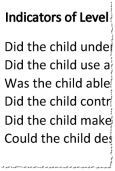ORBIT
ORBIT shares existing expertise on teacher education and classroom teaching that supports active learning in mathematics and science. ORBIT is for HE teaching (PGCE), training schools and teacher mentors, as well as continuing professional development. (More about ORBIT). The ORBIT resources are lesson ideas (with supporting materials) in mathematics and science, for primary and secondary, as well as resources aimed at teacher education. All resources are further organised by the particular teaching approach used, as well as the ICT tools used in the lesson idea.
Browse the resources

|

|

|

|

|

|

|

|

|
Featured resources
| Probability | Playing with Probability - Efron's Dice | |

|
I have some dice that are coloured green, yellow, red and purple... Efron's dice provide a discussion(ta) topic for joint reasoning(ta) - whole class(ta) or in group work(ta). Pupils can explore aspects of mathematical thinking(ta) particularly with relation to probability.
| |
| Progression | Developing Progression in Primary Science | |

|
Progression and the wonders of 'one-ness' and 'two-ness' A first part on ‘developing progression in science investigations’ could be used to prompt discussion on how far we expect pupils to develop, and the sorts of inquiry(ta) which encourage this.
The second part, 'indicators of Level 1 and 2ness', provides a useful set of criteria for assessing national curriculum levels. These criteria prompt thinking about assessment(ta) levels in curriculum development(topic). A concrete outcome of the activity may be to keep such criteria in a mark book for day-to-day use. | |

